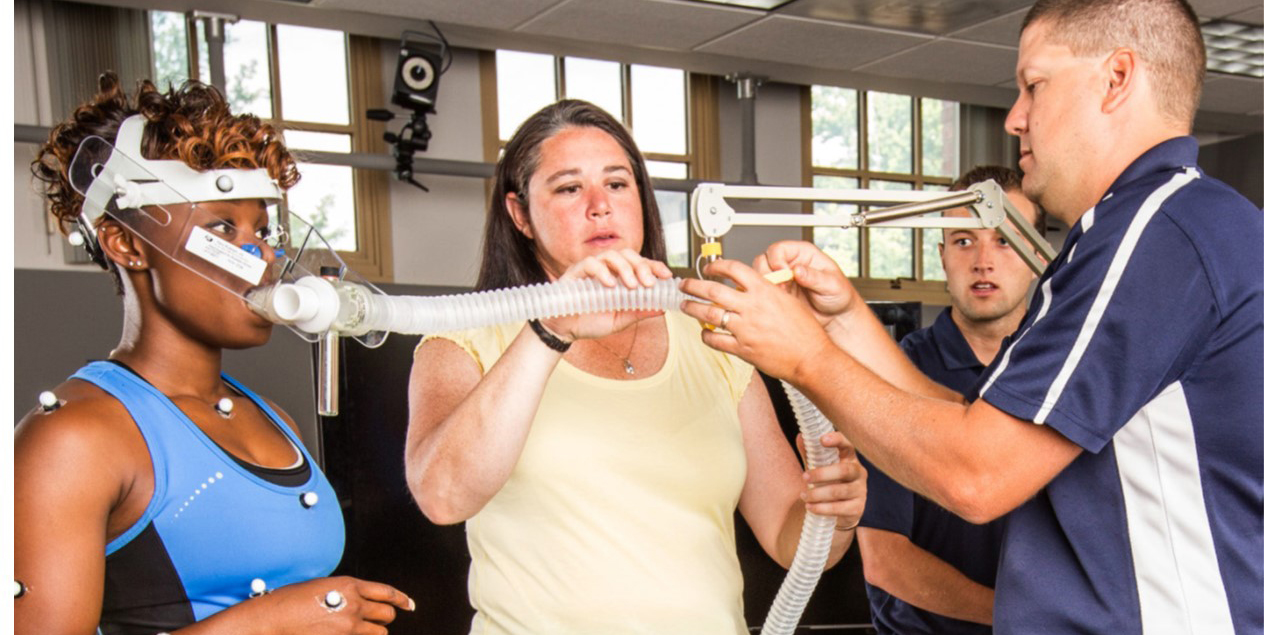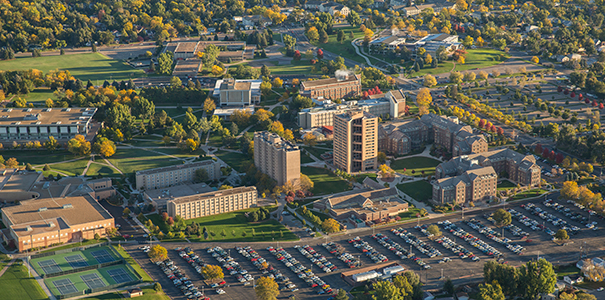
Starting in the fall 2022 semester, the School of Sport and Exercise Science and the Department of Nutrition and Dietetics will combine to form the Department of Kinesiology, Nutrition and Dietetics (KiND) under the College of Natural and Health Sciences. Professor and KiND Chair David Hydock, Ph.D., says the merger will facilitate more collaboration and opportunities for students.
“There are a lot of crossovers already happening,” Hydock said. “Many students in Sport and Exercise Science have an interest in nutrition and many students in Nutrition and Dietetics have an interest in sport and exercise science.”
With the new department, there will be no changes to the current programs, they’ll just be housed under the same umbrella. The most noticeable difference is the departure from using the term sport and exercise science and shifting it to kinesiology.
“The term kinesiology refers to movement science,” Hydock said. “It embodies more of what we have in what was the School of Sport and Exercise Science. For example, when it comes to Physical Education and Physical Activity Leadership, sport and exercise science really doesn’t capture that, but kinesiology does.”
Under KiND, the university will offer Exercise Science, Human Performance, Physical Education, Sport Administration, Athletic Training, Nutrition and Dietetics majors. All of which link up to the overarching concept of wellness.
“When we look at coursework in exercise physiology we talk about nutrition,” Hydock said. “It’s always there because it’s part of fuel and moving muscles."
Hydock says it’s not uncommon for athletic trainers or strength and conditioning coaches for example to get asked about diets and the latest nutrition fads from their clients and athletes. Likewise, nutritionists may get asked what types of physical activity they would recommend, so providing students with knowledge in all subjects will support a well-rounded education.
“It’s so important as we prepare students to give them all of the tools necessary,” Hydock said.
Those tools include access to equipment used in the labs.
“We already started working on sharing equipment,” Hydock said. “There’s some equipment that Nutrition and Dietetics would be of benefit to like metabolic carts used to measure the amount of oxygen inhaled that are used in kinesiology, as well as kinesiology utilizing body composition equipment.”
Hydock says there is discussion of creating new programs under KiND. Specifically, a sport nutrition program is a possibility, which would combine elements of human performance and exercise science with nutrition to give students unique coursework. However, for now, the focus is to encourage collaboration and look at wellness in the big picture to best support student success.
“Sometimes working in silos doesn’t necessarily work,” Hydock said. “From faculty interaction amongst themselves in research to faculty interaction with students on related projects, KiND will provide students with a richer educational experience. ”
More Stories
-
Governor Polis Reappoints Monfort and Campos-Spitze to UNC’s Board of Trustee
Este artículo no está en español.
-
UNC Choirs Brings Together Guest Musicians, Alumni, Students and Faculty for Major Works
Este artículo no está en español.
-
Week-Long Celebration to Honor First-Generation College Students
Este artículo no está en español.
-
UNC Arts to Host “The President’s Own” United States Marine Band
Este artículo no está en español.




